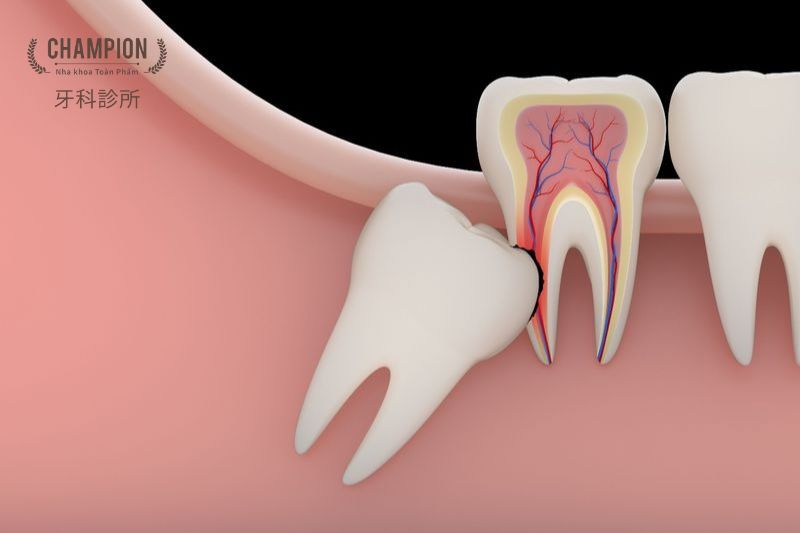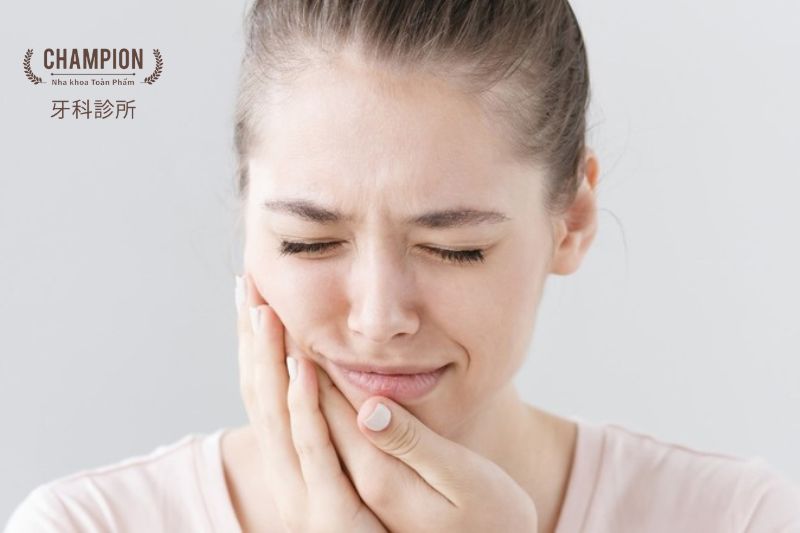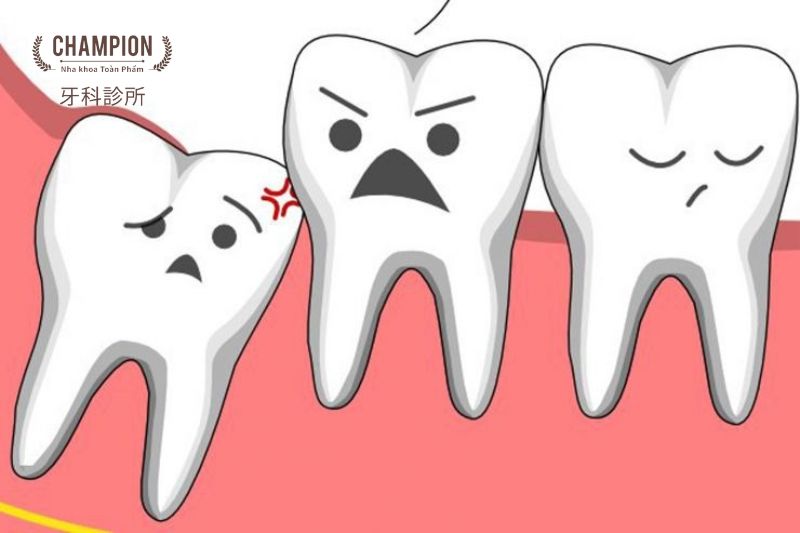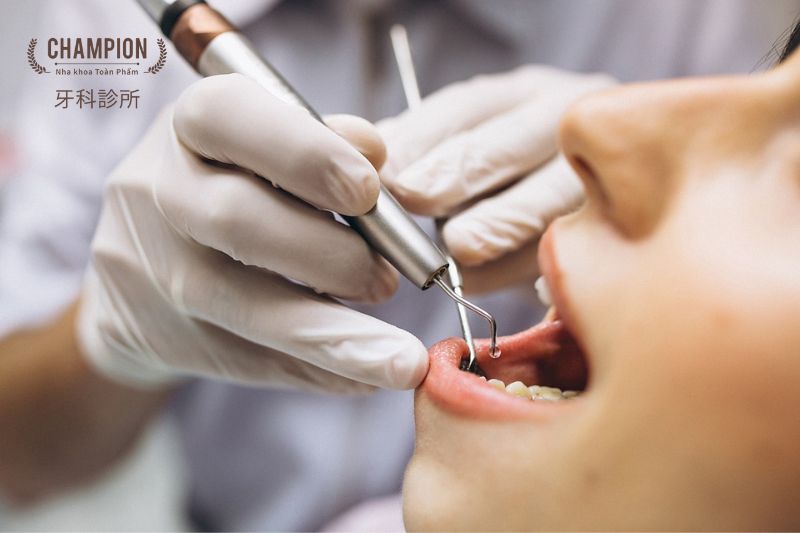Extracting wisdom teeth is an important dental health decision that many people face. In many cases, wisdom teeth grow in incorrect positions, causing pain, infection, and even affecting overall oral and general health. So when should wisdom teeth be extracted and where should this be done to ensure health safety? Follow the information from the following article by Champion Dental Clinic.
What is a wisdom tooth?
A wisdom tooth is the last molar that emerges in the jaw, usually appearing between the ages of 17 and 25. Wisdom teeth are also known as the third molars or number 8 teeth. They can grow straight, crooked, crowded, impacted, or become trapped in the gums.
The function of wisdom teeth is still a matter of debate. Some experts believe they serve no purpose and only cause problems. Others argue that wisdom teeth play a role in chewing and help balance biting forces.
When should wisdom teeth be extracted?
Extracting wisdom teeth is necessary in specific cases, including:
- Crooked, crowded, impacted, or gum-trapped growth: These conditions prevent the wisdom teeth from emerging properly, causing pain, difficulty in cleaning, and can lead to other oral problems such as tooth decay, gum disease, abscesses, etc.
- Straight growth but without an opposing tooth to align with: Without a corresponding tooth, the wisdom tooth can overgrow, damaging the adjacent second molar, causing decay or pulp inflammation.
- Decay, pulp inflammation, or other pathological conditions: These cases require extraction to prevent the spread to other teeth.
- Gum inflammation and infection: Wisdom teeth often make cleaning difficult, allowing bacteria to thrive, leading to gum inflammation and infection. In these cases, extraction is a reasonable solution.
- Pain and discomfort: Wisdom tooth pain may indicate more serious issues like dental pulp inflammation or abscess. If you experience prolonged pain, it is advisable to consult a dentist for examination and advice.

When is the best time to extract a wisdom tooth?
Many people wonder when is the appropriate time to extract a wisdom tooth. The best time for extraction is when the wisdom tooth has not fully emerged, meaning when it has just partially broken through the gum. At this stage, the extraction process is simpler and less painful.
If the wisdom tooth has fully emerged, the extraction process can be more complicated and potentially more painful. However, if the wisdom tooth is causing pain, discomfort, or poses a risk to other teeth, it should be extracted even if it has fully emerged.

How long does the pain last after a wisdom tooth extraction?
Pain, swelling, and discomfort are common after a wisdom tooth extraction. The duration of pain depends on several factors, including:
- The position of the wisdom tooth: Teeth that are crooked, impacted, or trapped in the gum are usually harder to extract and may cause more pain.
- The patient's health condition: Those in good health with a normal immune system typically recover faster.
- Post-extraction care: Proper care of the wound can help reduce pain and shorten recovery time.
Typically, pain begins after the anesthetic wears off and can last for the first 2-3 days, gradually decreasing thereafter. Most pain should subside within about 7 days, allowing normal eating habits to resume.
However, in some cases, pain may last longer, even up to a week or more. If you experience prolonged pain, consult a dentist.

>> See more: Is the dental implant method good? How long does it take to heal?
Post-extraction care guidelines
Proper care after a wisdom tooth extraction is crucial for quick healing and minimizing complications. After determining when to extract a wisdom tooth, patients should adhere to the following care instructions for optimal oral health:
- Take painkillers as prescribed by the dentist. These will help alleviate pain, swelling, and discomfort after the extraction.
- Apply ice to the cheek for 20 minutes at a time, 4-6 times a day.
- Eat soft foods, avoiding hard, chewy, or hot foods. Gentle eating helps avoid injury to the wound. Opt for porridge, soup, milk, etc., for the first 2-3 days. Afterward, you can eat soft, easily chewable foods.
- Gently clean your teeth with saline water and a soft toothbrush. Be gentle, avoid vigorous rinsing or using toothpicks.
- Avoid smoking, alcohol, and other stimulants, as they can slow the healing process.
- Attend follow-up appointments with the dentist. The dentist will check the wound and provide further oral care guidance.

Extracting a wisdom tooth is not always necessary, but in some cases, it is the best solution to avoid serious oral health issues. With the information on when to extract a wisdom tooth shared by Champion Dental, we hope you have gained useful knowledge. Listening to your body and consulting a professional is the best way to decide whether you need a wisdom tooth extraction
Vietnamese & English: (028) 5411-2295
中文: (028) 5411-2297 172 Nguyen Luong Bang, Tan Phu Ward, District 7, Ho Chi Minh City.
Fanpage: Champion Dental Clinic 牙科診所
Zalo: Champion Dental Clinic
Youtube: Champion Dental Clinic 牙科診所
 Champion Dental Clinic
Champion Dental Clinic



